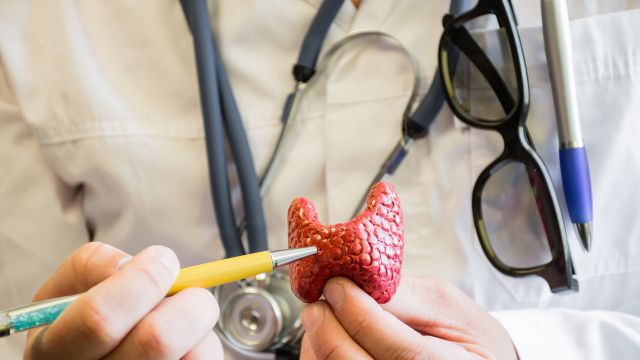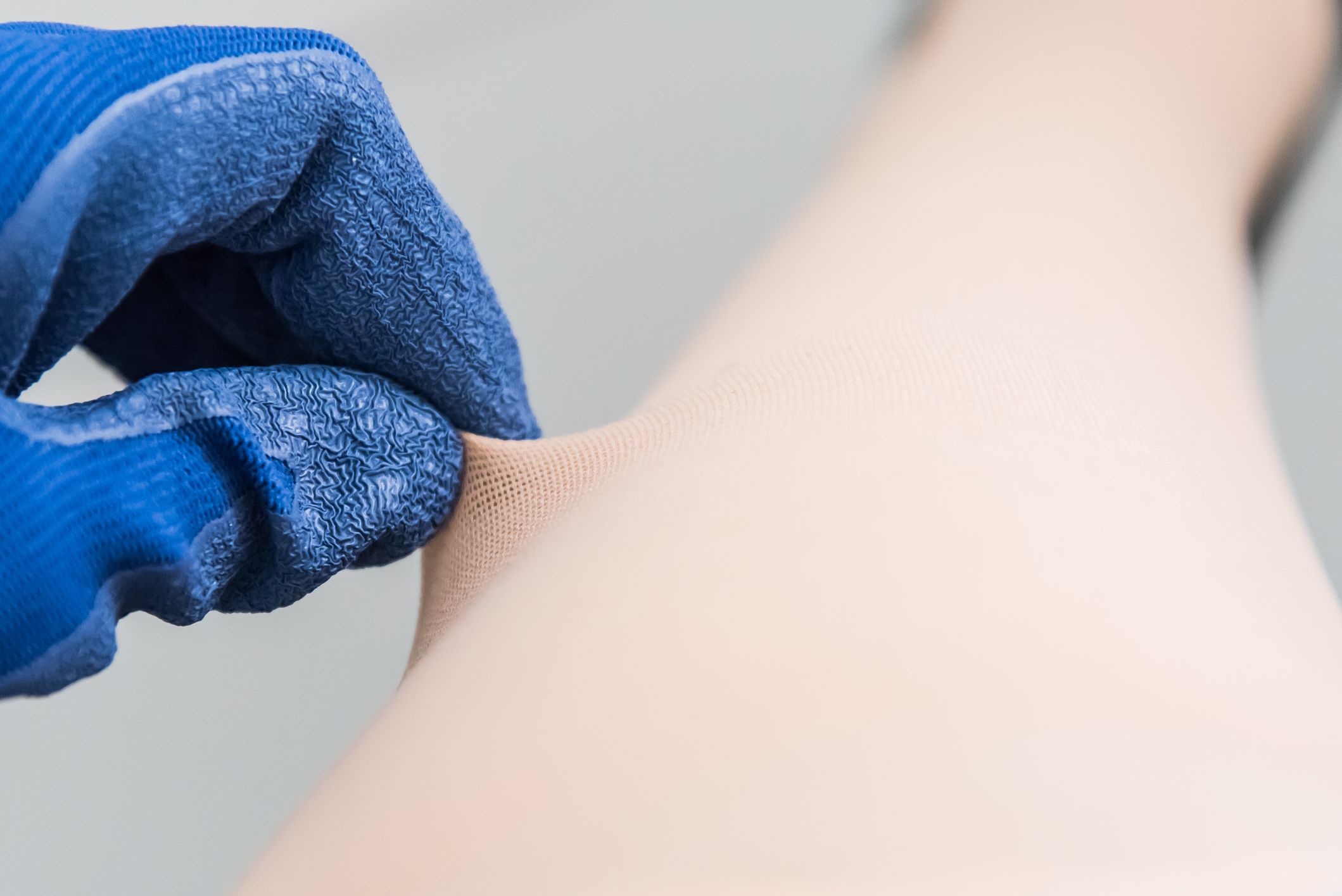Updated on July 24, 2024
Your thyroid is a small butterfly-shaped gland in the front of your neck, located just below your Adam’s apple. The thyroid gland releases hormones that regulate your body’s metabolism. If your thyroid doesn’t work right—if it produces too much or too little thyroid hormones—many important body functions can be disrupted.
Signs of thyroid problems
When the thyroid releases too little thyroid hormone, it's called hypothyroidism. Many important body functions slow down, including your heart rate and digestion. Symptoms of hypothyroidism usually develop gradually and can be subtle. They may include:
- Feeling tired, sluggish, and weak
- Weight gain
- Depression
- Constipation
- Difficulty concentrating
- Joint or muscle pain and weakness
- Dry skin and hair loss
- Irregular or heavier periods, fertility problems
Sometimes your body releases too much thyroid hormone. “When there is excessive production of thyroid hormone, the condition is called hyperthyroidism or overactive thyroid,” says endocrinologist Javaid Wani, MD, of Endocrinology Associates in Belmont, North Carolina. This causes your body’s functions to speed up, which can make you jittery, irritable, and anxious.
Other signs of hyperthyroidism include:
- Unintentional weight loss
- Rapid or irregular heartbeat and chest pain
- Excessive sweating and sensitivity to heat
- Muscle weakness, shaky hands
- Difficulty sleeping
- More frequent bowel movements
- Missed or light menstrual periods
- Protruding eyes
Severe hyperthyroidism, particularly in older people, can cause heart rhythm disorders. If left untreated, these can result in major damage to the heart muscle—possibly even congestive heart failure, says Dr. Wani.
Your thyroid can develop growths called nodules. They don't usually cause symptoms and are typically benign (harmless). Sometimes they can be a sign of, or turn into, thyroid cancer. Thyroid nodules can also cause thyroid dysfunction, says Wani.
Another sign of a thyroid problem is an enlargement on the front of your neck in the area of your thyroid gland. This is called a goiter, and it can develop with both hypo- or hyperthyroidism. A goiter can make your neck appear bigger or swollen. You may notice it yourself, or your healthcare provider (HCP) may find it during a routine exam.
Goiters can be caused by iodine deficiency. They’re extremely rare in the United States, says Wani, since iodine-rich food is readily available. When goiters do occur in the U.S., they’re typically due to another issue. These include nodules and autoimmune conditions like Hashimoto’s disease (which can cause hypothyroidism) or Graves’ disease (an autoimmune condition that can cause hyperthyroidism).
Do a thyroid check at home
About 20 million Americans are estimated to have thyroid problems and up to 60 percent of these people may be unaware of their condition, according to the American Thyroid Association. As with most conditions, the sooner you catch and treat it, the better. So, it’s a good idea to do a thyroid self-check periodically. All you need is a handheld mirror and a glass of water. Follow these steps:
- Hold the mirror in your hand, focusing on the lower front area of your neck, just above your collarbones.
- Lean your head back, but not so much that you can’t see the mirror.
- Take a drink of water. As you swallow, check your thyroid area for any unusual bulges or protrusions. Touch the area on your neck, feeling for any lumps.
- Repeat the steps a few times to get a good look.
When to see your HCP
If you see anything suspicious during your thyroid self-check or if you have symptoms suggesting signs of a thyroid problem, see your HCP. Most thyroid disorders can be diagnosed with blood tests and an ultrasound scan. If your HCP suspects thyroid cancer, a biopsy will be performed to confirm the diagnosis.
Keep your thyroid healthy
While some thyroid disorders are caused by things you can’t really control, like autoimmune problems or genetics, there are steps you can take to promote a healthy thyroid.
- Don’t smoke. Chemicals in cigarettes can increase the risk of Graves’ disease.
- Check yourself. Do a thyroid self-check occasionally.
- Maintain a healthy weight. While the exact reason is not completely understood, obesity may indirectly cause hypothyroidism, says Wani.
If you have certain risk factors, you can also ask your HCP if you should get a TSH (thyroid-stimulating hormone) test. It’s a simple blood test that can determine if your thyroid is functioning normally. The risk factors include:
- A family history of thyroid disease
- Being over age 60
- Taking certain medications like the antidepressant lithium or the heart medicine amiodarone
- Having undergone radiation therapy to the head or neck
- Having symptoms associated with a thyroid disease
One thing you should not do for thyroid health is take supplements that claim to benefit the thyroid. “There isn’t enough evidence that any diet supplement can help your thyroid,” says Wani. In fact, some supplements can harm you.
Certain supplements may contain dangerously high levels of iodine that can lead to hyperthyroidism, Wani says. While iodine deficiency is a major cause of goiter in underdeveloped countries, Wani explains that Americans get enough iodine in their diet to support a healthy thyroid. Even if you’re on a restricted diet, you still get enough, he says.
A thyroid disorder can make you feel very sick if left untreated. But most thyroid problems can be addressed by an endocrinologist or your primary care provider, especially when they’re diagnosed and treated early. Effective treatments are available that can help you feel like yourself again so you can live an active, productive life.






